
Find Help
More Items From Ergsy search
-

How soon can a pregnancy test detect pregnancy?
Relevance: 100%
-
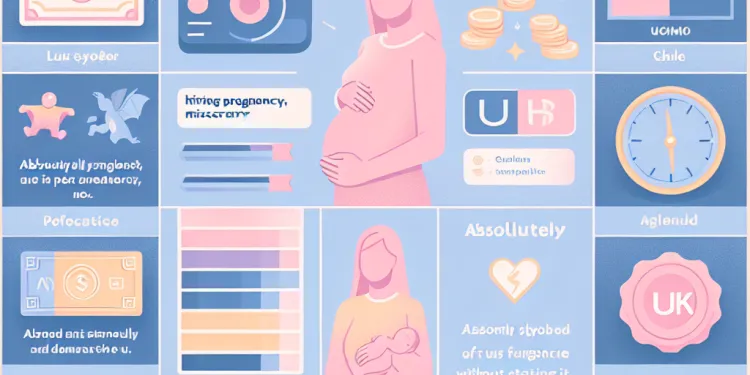
Can a pregnancy test detect a miscarriage?
Relevance: 97%
-

Do all pregnancy tests detect the same levels of hCG?
Relevance: 91%
-

What is a pregnancy test?
Relevance: 88%
-

What are the different types of pregnancy tests?
Relevance: 82%
-

How does a pregnancy test work?
Relevance: 81%
-

When should I take a pregnancy test?
Relevance: 79%
-

What if my pregnancy test is positive?
Relevance: 79%
-
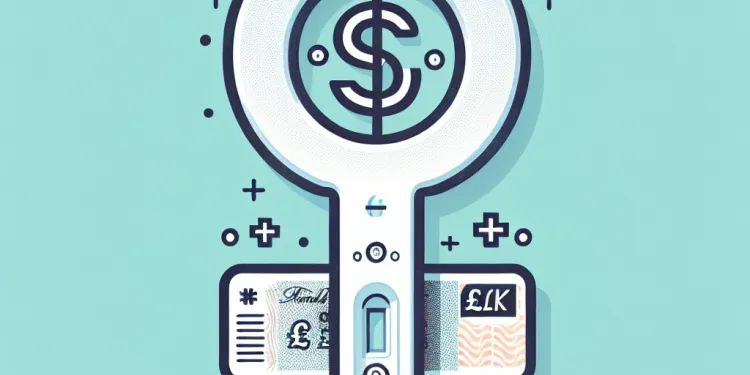
Can a pregnancy test expire?
Relevance: 78%
-

Can stress affect a pregnancy test result?
Relevance: 76%
-
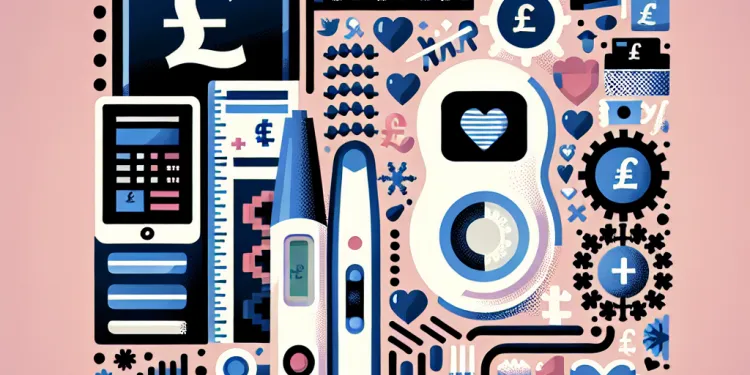
Are digital pregnancy tests more accurate than non-digital tests?
Relevance: 76%
-

Can medications affect pregnancy test results?
Relevance: 74%
-

What if my pregnancy test is negative and I still think I'm pregnant?
Relevance: 73%
-

Can drinking a lot of water affect pregnancy test results?
Relevance: 73%
-

What can cause a false positive pregnancy test?
Relevance: 72%
-

What should I do if I get unclear results on a pregnancy test?
Relevance: 67%
-
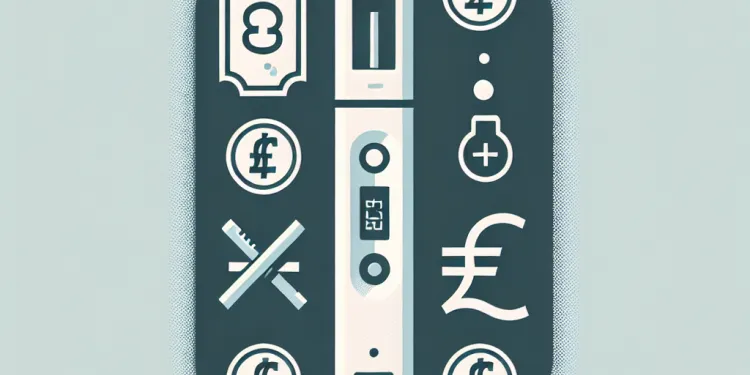
How long should I wait to read the results of a pregnancy test?
Relevance: 66%
-

What does an evaporation line mean on a pregnancy test?
Relevance: 65%
-

HIV and pregnancy | NHS
Relevance: 64%
-
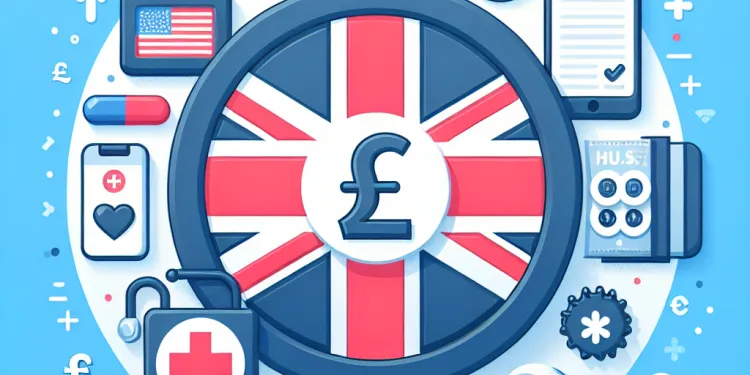
How accurate are home pregnancy tests?
Relevance: 59%
-

Is cycling safe during pregnancy?
Relevance: 55%
-
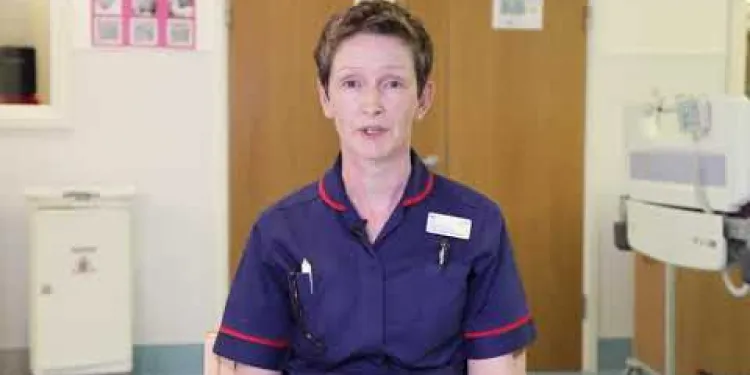
Gestational Diabetes during pregnancy
Relevance: 55%
-
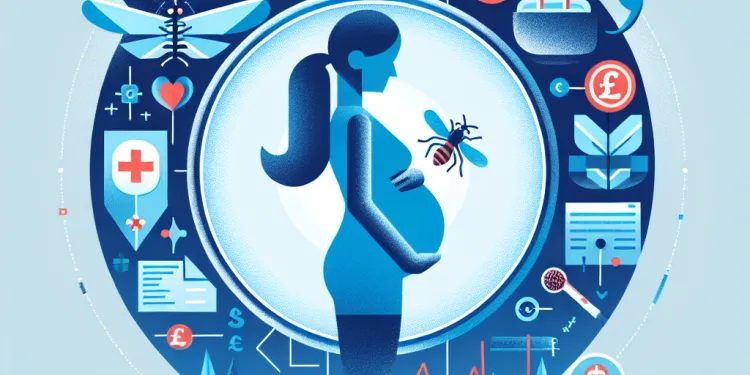
Can Zika virus affect pregnancy?
Relevance: 54%
-

What exercises can I do during pregnancy?
Relevance: 53%
-

Are there any exercises to avoid during pregnancy?
Relevance: 53%
-
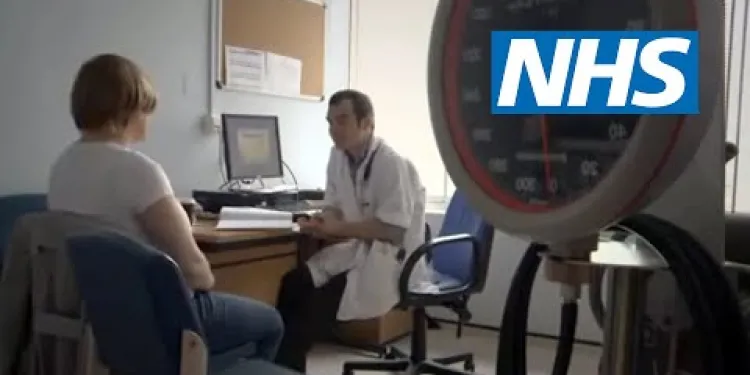
What should I do if I start bleeding during early pregnancy? | NHS
Relevance: 53%
-

How does exercise benefit pregnancy?
Relevance: 53%
-

Can I continue running during pregnancy?
Relevance: 53%
-

Can I do abdominal exercises during pregnancy?
Relevance: 53%
-

How often should I exercise during pregnancy?
Relevance: 51%
-

Does IVF guarantee pregnancy?
Relevance: 51%
-

How can I ensure safety during pregnancy exercises?
Relevance: 51%
-

Can postnatal depression affect subsequent pregnancies?
Relevance: 51%
-
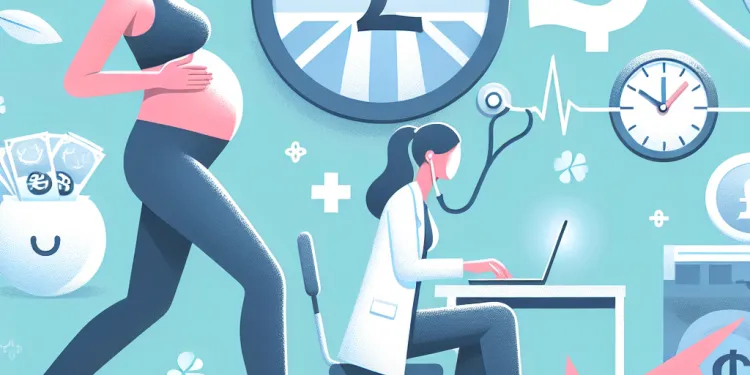
Do I need to consult a doctor before exercising during pregnancy?
Relevance: 50%
-

Is swimming a good exercise during pregnancy?
Relevance: 49%
-

Can I take exercise classes during pregnancy?
Relevance: 49%
-

What should I wear for exercising during pregnancy?
Relevance: 49%
-

How can I modify my yoga practice during pregnancy?
Relevance: 49%
-
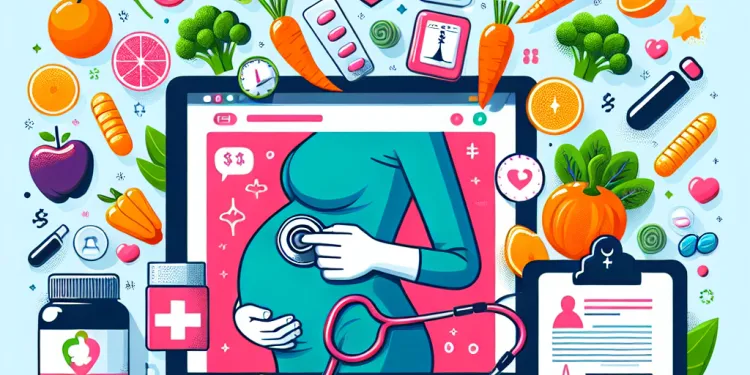
Nutrition for Pregnancy: What to Eat
Relevance: 49%
-

How can the risks and benefits of medications during pregnancy be assessed?
Relevance: 48%
Understanding Pregnancy Tests
Pregnancy tests are designed to detect the presence of the hormone human chorionic gonadotropin (hCG) in a woman's body. This hormone is produced shortly after a fertilised egg attaches to the wall of the uterus. For most women, hCG is detectable in the urine around 10 to 14 days after conception.
Types of Pregnancy Tests
There are two primary types of pregnancy tests available: urine tests and blood tests. Urine tests, which can be conducted at home, are the most common. Blood tests, while less frequently used, are conducted in a medical setting and can detect pregnancy slightly earlier than urine tests.
Home Pregnancy Tests
Home pregnancy tests are convenient and widely available in pharmacies without a prescription. Most tests on the UK market claim to be over 99% accurate when used on the day of your expected period. However, some more sensitive tests can provide an accurate result a few days before your missed period.
The earliest a home pregnancy test can typically detect hCG is about 8 days after conception. However, for the most reliable result, it is recommended to wait until at least the first day after your missed period. Testing too early might lead to a false negative if the levels of hCG are not high enough to be detected yet.
Blood Tests for Pregnancy
Blood tests can detect pregnancy earlier than urine tests, generally 6 to 8 days after ovulation. These tests measure the exact amount of hCG in your blood. There are two types of blood tests: qualitative, which gives a simple yes or no answer, and quantitative, which measures the specific level of hCG to identify how far along the pregnancy might be.
Although more accurate and able to detect lower levels of hCG, blood tests are not as commonly used due to higher costs and the need for a healthcare professional to administer the test.
Factors Affecting Test Results
Several factors can influence the accuracy of pregnancy tests. Testing too early is the most common cause of inaccurate results, particularly false negatives. Checking the sensitivity of the test, following instructions carefully, and using the first morning urine for testing can increase the chances of an accurate result. Certain medications and medical conditions can also affect test outcomes. It's advisable to consult with a healthcare provider if there is any uncertainty regarding test results.
Conclusion
While some pregnancy tests can detect pregnancy very early, it is generally recommended to wait until the expected date of your period for the most accurate result. If there are any doubts or if an early test is necessary, consulting with a healthcare professional can provide additional guidance.
What is a Pregnancy Test?
Pregnancy tests check for a special hormone called hCG in a woman’s body. This hormone is made when a fertilised egg attaches to the uterus. Most women can find hCG in their urine about 10 to 14 days after the egg gets fertilised.
Types of Pregnancy Tests
There are two main types of pregnancy tests: urine tests and blood tests. Urine tests are the ones you can do at home and are the most common. Blood tests are done in a doctor’s office and can find pregnancy a little earlier than urine tests.
Home Pregnancy Tests
You can buy home pregnancy tests at a pharmacy. You don't need a doctor's note to get them. Most tests say they are more than 99% correct if you use them on the day your period is due. Some tests can work a few days before your period is missed.
The earliest a home pregnancy test can find hCG is about 8 days after the egg is fertilised. But the best time to test is after you miss your period. Testing too early can give a wrong 'no' result if hCG levels are still low.
Blood Tests for Pregnancy
Blood tests can find pregnancy earlier than urine tests, usually 6 to 8 days after ovulation. They measure how much hCG is in your blood. There are two types: one gives a simple yes or no, and the other checks how much hCG there is to tell how far along you are in pregnancy.
Blood tests are very good at finding pregnancy but cost more and need a doctor or nurse to do them.
Things That Can Affect Test Results
Many things can change how right a pregnancy test is. Testing too early is the most common problem and can cause wrong 'no' results. Using the test's instructions properly and checking the test's sensitivity can help. Testing with your first morning urine also helps. Some medicines and health problems can change test results. It is good to talk to a doctor if you are unsure about your results.
Summary
While some tests can find pregnancy early, it’s best to wait until your period is due for accurate results. If you are not sure or need an early test, talking to a doctor can help.
Frequently Asked Questions
How soon can I take a home pregnancy test?
Most home pregnancy tests can detect pregnancy as early as the first day of your missed period. Some sensitive tests claim to detect pregnancy a few days before your missed period.
Can I take a pregnancy test before my missed period?
Yes, some sensitive pregnancy tests are designed to detect pregnancy a few days before your missed period, but accuracy increases after the missed period.
When does the body start producing hCG?
The body starts producing hCG shortly after a fertilized egg implants in the uterus, which is typically about 6-12 days after conception.
What is the most sensitive pregnancy test?
Tests that can detect low levels of hCG, such as those that claim to detect hCG levels as low as 10 mIU/mL, are considered highly sensitive.
How accurate are early pregnancy tests?
Early pregnancy tests can be up to 99% accurate when used correctly, but their accuracy increases the closer you are to your expected period date.
Why might a pregnancy test show a false negative?
Taking the test too early, using diluted urine, or not following the test instructions correctly can lead to a false negative result.
Can a blood test detect pregnancy earlier than a urine test?
Yes, a blood test can detect pregnancy earlier than a urine test, typically about 6-8 days after ovulation.
What is the difference between a qualitative and a quantitative hCG blood test?
A qualitative hCG test simply checks for the presence of hCG, while a quantitative hCG test measures the specific level of hCG in the blood.
Are there any symptoms that indicate pregnancy before a positive test?
Some women experience symptoms such as nausea, breast tenderness, or fatigue before a positive pregnancy test, but these symptoms can vary.
What should I do if I have a positive pregnancy test result?
If you have a positive result, schedule an appointment with your healthcare provider to confirm the pregnancy and begin prenatal care.
How soon after conception can a blood test detect pregnancy?
A blood test can usually detect pregnancy about 6-8 days after conception.
Can medications affect the result of a home pregnancy test?
Certain medications, especially those containing hCG, can affect test results. However, most common medications, including antibiotics and birth control, do not affect test results.
Is it possible to have a positive pregnancy test and not be pregnant?
Very rarely, certain medical conditions and some medications can cause a false positive result.
How long should I wait after a missed period to take a pregnancy test?
It's generally recommended to wait until at least the first day of your missed period for the most accurate results.
What is the best time of day to take a pregnancy test?
The best time to take a pregnancy test is with your first morning urine, as it contains the highest concentration of hCG.
Do all pregnancy tests work the same way?
Most pregnancy tests work by detecting hCG in urine, but they can vary in sensitivity and the way results are displayed.
Can stress affect the result of a pregnancy test?
Stress does not affect hCG levels but can affect your menstrual cycle, possibly leading you to test at an inappropriate time.
What if I see a faint line on the pregnancy test?
A faint positive line often indicates a positive test, but you may want to retest a few days later or consult your doctor for confirmation.
Can fertility treatments affect the timing of a positive pregnancy test?
Yes, fertility treatments that include hCG injections can affect the timing and result of a pregnancy test.
What should I do if I suspect I'm pregnant but get a negative test result?
If you suspect you're pregnant but receive a negative result, wait a few days and test again. If results are still unclear, consult your healthcare provider.
When can I use a home pregnancy test?
Most home pregnancy tests can tell if you are pregnant on the first day you miss your period. Some special tests can even tell a few days before you miss your period.
Can I take a pregnancy test before I miss my period?
Yes, some special pregnancy tests can tell if you are pregnant a few days before your period is due. But it is more accurate to take the test after your period is late.
When does the body make hCG?
The body starts making hCG when a fertilized egg attaches to the wall of the uterus. This is also known as implantation. It usually happens about 6 to 12 days after conception.
To help understand, you can use pictures or diagrams. A supportive tool might be a calendar to track days from conception. You can also ask someone to explain it to you in simple words.
The body starts making a special hormone called hCG. This happens soon after a tiny baby egg attaches inside the tummy, called the uterus. This usually takes about 6 to 12 days after the egg and sperm come together, which is called conception.
Which pregnancy test can tell you the soonest if you are pregnant?
Some pregnancy tests can tell you very early if you are pregnant. These are called "sensitive" pregnancy tests. They check for a small amount of a special hormone in your urine. This hormone is called hCG. Tests that can find lower amounts of hCG are more sensitive.
To find the best test for you, you can:
- Ask a doctor or nurse for advice.
- Look for reviews or information online.
- Read the instructions on the test box.
If you find reading hard, you can:
- Ask someone you trust to help you read the test box.
- Use an app that reads text aloud.
Some tests can find tiny amounts of a thing called hCG in your body. These tests say they can find hCG when there is just a little bit, like 10 mIU/mL, which means they are very good at finding hCG.
If reading is hard, you can use tools like reading apps that read out loud or highlight words. Breaking text into smaller bits or using pictures can help too.
How good are early pregnancy tests?
Early pregnancy tests are tools that help you know if a baby is growing inside. These tests are pretty good at showing if you are going to have a baby, but sometimes they can be wrong. It is a good idea to take the test in the morning for better results. If you are unsure, ask an adult for help or talk to a doctor.
If the test is too hard to read, you can ask someone you trust to help you understand the results. You can also use a phone or computer to look up videos or pictures that explain how to use the tests.
Pregnancy tests can tell if you're pregnant. If you use the test the right way, it can be right 99 times out of 100. It works best when your period is very near.
Why might a pregnancy test say "not pregnant" when you are?
If you take the test too soon, use pee with too much water, or don't follow the test steps right, you might get a wrong answer that says "not pregnant" when you might be.
Can a blood test find out if you are pregnant before a urine test?
Yes, a blood test can find out if someone is pregnant earlier than a urine test. This can happen about 6 to 8 days after the body releases an egg, which is called ovulation.
If you need help reading, you can try pointing to each word as you read. You can also ask someone to read with you or use audiobooks for more support.
How are qualitative and quantitative hCG blood tests different?
Qualitative hCG Test: This test checks if you are pregnant or not. It gives a simple answer: "yes" or "no".
Quantitative hCG Test: This test tells you the exact amount of hCG in your blood. It shows how much is there.
Helpful Tips: If reading is hard, use a ruler or finger to follow the words. Ask someone to read it with you. You can also use a reading app to listen to the words.
A simple hCG test checks if there is hCG in the body. A number hCG test shows how much hCG is in the blood.
Can you feel pregnant before a test says yes?
Sometimes, your body gives clues if you might be pregnant even before a test shows it.
Here are some signs:
- Feeling more tired than usual
- Feeling sick or wanting to throw up
- Sore or bigger breasts
- Having to pee more often
- Feeling moody or different emotionally
- A little bleeding or spotting
If you think you might be pregnant, you can:
- Talk to a doctor or nurse
- Use a pregnancy app to track your symptoms
- Ask someone you trust for help or support
Some women might feel sick in their tummy, have sore boobs, or feel really tired before they know they are pregnant. But not everyone feels the same things.
What to Do if Your Pregnancy Test Says 'Yes'
If your test says you are going to have a baby, here are some things to do:
- See a Doctor: Go to a doctor to be sure and to get help.
- Eat Healthily: Make sure you have healthy food like fruits and veggies.
- Rest Well: Try to sleep enough and rest when you need to.
- Talk to Someone: Chat with someone you trust about how you feel.
Need help reading? You can ask someone you trust to read with you.
If your test says you are pregnant, call and make a doctor's appointment. The doctor will check if you are pregnant and help you take care of yourself and the baby.
When can a blood test show you are pregnant?
A blood test can tell if you are pregnant. It can do this about 6 to 8 days after a sperm meets an egg. This is called conception.
If you think you might be pregnant, a doctor can help. They might use a blood test to know for sure.
A blood test can show if you’re pregnant 6 to 8 days after the baby starts growing.
Can medicine change what a home pregnancy test says?
Some medicines can change test results. Medicines with hCG can do this. But most other medicines, like antibiotics and birth control, do not change test results.
Can a pregnancy test say "Yes" when I'm not pregnant?
Sometimes, but not often, certain health problems and some medicines can give a wrong test result.
When should I take a pregnancy test if I miss my period?
If you do not get your period, you might be pregnant. You can take a pregnancy test 1 week after your period was supposed to start. This will give you a better answer.
Here are some tips to help you:
- Set a reminder on your phone to check if your period is late.
- You can use a calendar to mark when your period should start and end.
- If you have questions or feel worried, talk to a grown-up you trust.
It is best to wait until the first day after you miss your period to get the best answer from a test.
When is the best time to take a pregnancy test?
It's a good idea to take a pregnancy test in the morning. Here are some tips to help:
- Take the test when you first wake up.
- Your pee is stronger in the morning, which helps the test work better.
- Follow the instructions on the test box.
- Ask an adult if you need help.
You can set a reminder on your phone or ask someone you trust to remind you.
The best time to pee on a pregnancy test is when you wake up in the morning. Your morning pee has the most pregnancy hormone in it.
Do all pregnancy tests work the same way?
No, not all pregnancy tests work the same way. Some tests look for a hormone in your pee. This hormone is only there when you are pregnant. Other tests might check your blood.
Here are some tips to help you:
- Ask someone you trust to help you read the instructions on the box.
- Use a timer to know when to check the test result.
- Read the result in a place with good light.
- Talk to a doctor or nurse if you are unsure.
Most pregnancy tests check for a special hormone in urine called hCG. Some tests are better at finding it and show results in different ways.
Can stress change a pregnancy test result?
Stress cannot change the result of a pregnancy test.
Pregnancy tests look for a special hormone (a chemical) in your urine (pee).
But being stressed or worried doesn't change this hormone.
If you're feeling stressed, try doing something relaxing like deep breathing or talking to a friend.
If you are unsure, talk to a doctor or nurse.
Stress does not change hCG levels, but it can change your period. This might make you take a test at the wrong time.
What does a faint line on the pregnancy test mean?
If you see a faint line on your pregnancy test, it could mean you are pregnant. A faint line means there is a small amount of the pregnancy hormone in your body.
Here are some tips to help you:
- Read the instructions that come with the test. They can tell you more about how to understand the results.
- You can take another test in a few days to see if the line gets darker.
- If you are unsure, you can talk to a doctor or a nurse for help.
A light line means the test might be positive. You can try the test again in a few days or ask your doctor to make sure.
Do fertility treatments change when a pregnancy test shows positive?
Yes, treatments to help have a baby, like hCG shots, can change when you take a pregnancy test and what the result might be.
What to Do If You Think You Are Pregnant but the Test Says No
Do you feel like you might be pregnant but the test says no? Here’s what you can do:
- Try the test again. Sometimes, it’s good to wait a few days and test once more.
- Check the test instructions. Make sure you followed all the steps right.
- Talk to a doctor or a nurse. They can give you advice and help you understand what’s happening.
If you are not sure or need help, ask someone you trust to go with you to see a doctor.
If you think you might be pregnant but the test says "no," wait a few days and try the test again. If you are still not sure, talk to your doctor.
Tip: Use pictures or videos about pregnancy tests to help understand better.
Useful Links
This website offers general information and is not a substitute for professional advice.
Always seek guidance from qualified professionals.
If you have any medical concerns or need urgent help, contact a healthcare professional or emergency services immediately.
Some of this content was generated with AI assistance. We’ve done our best to keep it accurate, helpful, and human-friendly.
- Ergsy carfully checks the information in the videos we provide here.
- Videos shown by Youtube after a video has completed, have NOT been reviewed by ERGSY.
- To view, click the arrow in centre of video.
- Most of the videos you find here will have subtitles and/or closed captions available.
- You may need to turn these on, and choose your preferred language.
- Go to the video you'd like to watch.
- If closed captions (CC) are available, settings will be visible on the bottom right of the video player.
- To turn on Captions, click settings .
- To turn off Captions, click settings again.
More Items From Ergsy search
-

How soon can a pregnancy test detect pregnancy?
Relevance: 100%
-

Can a pregnancy test detect a miscarriage?
Relevance: 97%
-

Do all pregnancy tests detect the same levels of hCG?
Relevance: 91%
-

What is a pregnancy test?
Relevance: 88%
-

What are the different types of pregnancy tests?
Relevance: 82%
-

How does a pregnancy test work?
Relevance: 81%
-

When should I take a pregnancy test?
Relevance: 79%
-

What if my pregnancy test is positive?
Relevance: 79%
-

Can a pregnancy test expire?
Relevance: 78%
-

Can stress affect a pregnancy test result?
Relevance: 76%
-

Are digital pregnancy tests more accurate than non-digital tests?
Relevance: 76%
-

Can medications affect pregnancy test results?
Relevance: 74%
-

What if my pregnancy test is negative and I still think I'm pregnant?
Relevance: 73%
-

Can drinking a lot of water affect pregnancy test results?
Relevance: 73%
-

What can cause a false positive pregnancy test?
Relevance: 72%
-

What should I do if I get unclear results on a pregnancy test?
Relevance: 67%
-

How long should I wait to read the results of a pregnancy test?
Relevance: 66%
-

What does an evaporation line mean on a pregnancy test?
Relevance: 65%
-

HIV and pregnancy | NHS
Relevance: 64%
-

How accurate are home pregnancy tests?
Relevance: 59%
-

Is cycling safe during pregnancy?
Relevance: 55%
-

Gestational Diabetes during pregnancy
Relevance: 55%
-

Can Zika virus affect pregnancy?
Relevance: 54%
-

What exercises can I do during pregnancy?
Relevance: 53%
-

Are there any exercises to avoid during pregnancy?
Relevance: 53%
-

What should I do if I start bleeding during early pregnancy? | NHS
Relevance: 53%
-

How does exercise benefit pregnancy?
Relevance: 53%
-

Can I continue running during pregnancy?
Relevance: 53%
-

Can I do abdominal exercises during pregnancy?
Relevance: 53%
-

How often should I exercise during pregnancy?
Relevance: 51%
-

Does IVF guarantee pregnancy?
Relevance: 51%
-

How can I ensure safety during pregnancy exercises?
Relevance: 51%
-

Can postnatal depression affect subsequent pregnancies?
Relevance: 51%
-

Do I need to consult a doctor before exercising during pregnancy?
Relevance: 50%
-

Is swimming a good exercise during pregnancy?
Relevance: 49%
-

Can I take exercise classes during pregnancy?
Relevance: 49%
-

What should I wear for exercising during pregnancy?
Relevance: 49%
-

How can I modify my yoga practice during pregnancy?
Relevance: 49%
-

Nutrition for Pregnancy: What to Eat
Relevance: 49%
-

How can the risks and benefits of medications during pregnancy be assessed?
Relevance: 48%


